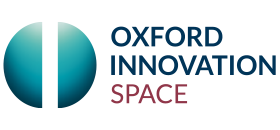This unique collaboration combines the deep technology and clinical expertise of Optellum with the software platforms and rapid development know-how of Mirada. They have partnered to address a huge and growing problem in lung cancer diagnosis: the management of patients with indeterminate pulmonary nodules.
A scientific presentation arising from the partnership working in collaboration with investigators from Oxford University Hospitals, entitled “Assessment of CT Texture Analysis as a Tool for Lung Nodule Follow-Up” (SSC03-02), was presented on Monday’s Chest (Lung Nodule) scientific session.
Early detection of lung cancer by a chest Computed Tomography (CT) scan can dramatically improve survival rates. Millions of chest CT scans are performed for a variety of reasons ranging from screening for lung cancer to scanning for suspected cardiac disease or even following trauma. Such scans frequently identify pulmonary nodules, small opacities in the lung. Up to 30% of all patients scanned have such small nodules, but the vast majority are harmless. Unfortunately, radiologists frequently struggle to determine if a nodule is cancerous, leading to an indeterminate diagnosis which requires up to two-year follow-up imaging to monitor growth. Moreover, additional biopsies and surgeries are often performed to investigate nodules that ultimately turn out to be benign. Millions of such unnecessary follow-up scans and procedures increase patient anxiety, carry a risk of complications and present a huge and growing burden on healthcare system resources.
The collaboration has developed the world’s first imaging Artificial Intelligence (AI) based decision support software to improve patient management and reduce unnecessary follow-up procedures. The software provides expert-level decision support that can improve a doctor’s ability to correctly diagnose lung nodules. The software, utilising state-of-the-art deep learning, provides an objective risk score of nodule malignancy learned from a database of tens of thousands of CTs with known ground-truth diagnoses. The output enables clinicians to confidently stratify lung nodule patients earlier, potentially on the basis of only one or two scans.
The team will be showcasing their work at the Mirada Medical booth #6520 and in the Quantitative Image Reading Room (QRR013) at the 103rd meeting of the Radiological Society of North America, November 26th to December 1st 2017.
About Optellum
Optellum is a startup based in Oxford, UK which aims to radically reshape lung cancer diagnosis and management, by ensuring that every patient is managed via the optimal diagnostic and treatment pathway. They are developing the world’s first automated patient management and image-based risk stratification software for incidental and screen-detected nodules in CT, powered by Deep Learning algorithms applied at key points in the lung nodule management pathway. To train the algorithms, they have assembled the world’s largest curated database of lung nodule patients developed specifically for machine learning or “radiomics”. Optellum comprise a team of award-winning medical imaging software and machine learning experts who met at Oxford’s world-renowned computer vision laboratory. The team have track records of bringing innovation to market through over 10 startup companies, resulting already in 5 trade-sales and one IPO.
To learn more about Optellum, please visit: www.optellum.com or for more information contact: info@optellum.com
About Mirada Medical
Mirada is a leading international brand that develops software applications that simplify solutions to complex image analysis problems in the diagnosis and treatment of cancer. Through automation, our products improve consistency and productivity while enabling clinicians to deliver more personalized care. By combining deep learning technology with our thorough understanding of the challenges faced in oncology today, Mirada is leading the development of next generation imaging software and decision support products. Our staff are passionate about using their expertise to help our customers provide better healthcare for more patients.
To learn more about Mirada Medical, please visit: www.mirada-medical.com or for more information, please contact info@mirada-medical.com:



